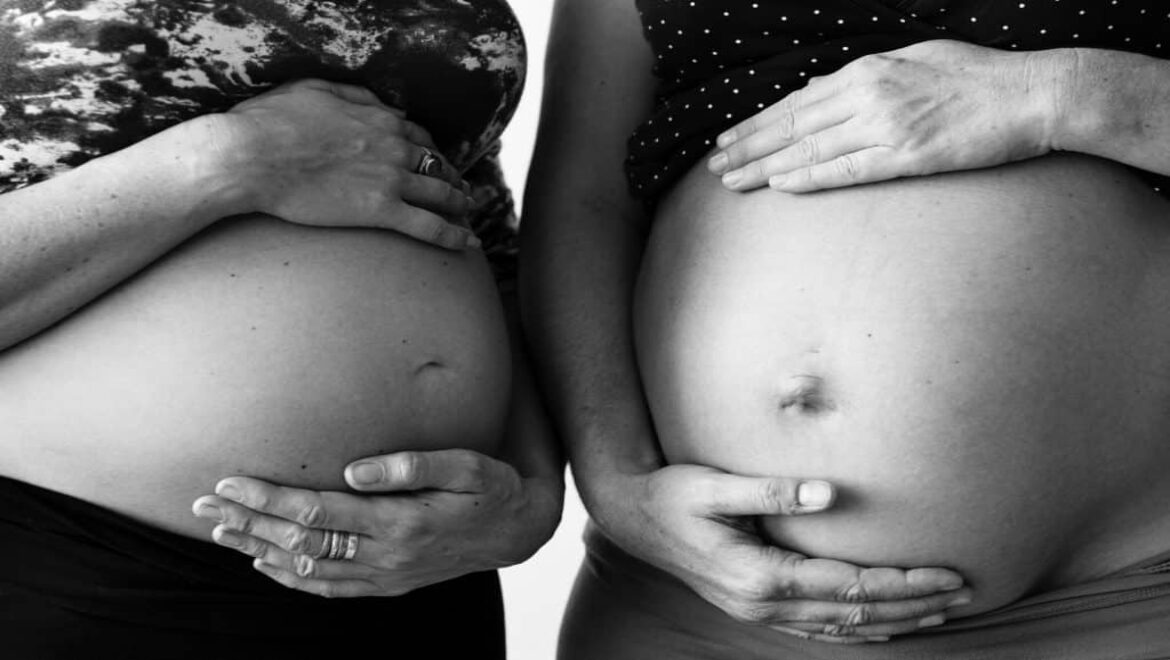
Strep B. Heard of it? Possibly not—until you’re pregnant.
Here’s the lowdown on what Strep B is, why it’s important, and how it is treated.
In the US, you’ll be offered routine screening for the bacteria that causes Strep B infection during the third trimester.
Read on to find out why this screening is offered, and what will happen if you’re tested positive.
What is Strep B and what causes it?
Strep B, or Group B strep disease, is a bacterial infection caused by the bacteria Group B streptococcus (GBS).
GBS is a common bacterium often found in the rectum or vagina, and is usually harmless in adults.
However, in babies and unhealthy individuals, it can cause a life-threatening infection.
About 25% of all healthy adult women carry the GBS bacteria which causes Strep B infection.
But it becomes more worrying when you’re pregnant as the infection develops and may pass from the mother to the baby.
You should note that Strep B is not sexually transmitted.
More often than not, people who carry the GBS bacteria show no symptoms.
The bacteria live naturally in the body and it is possible to test positive at some times and then negative at others.
Effects of Strep B on the baby
Most women who carry the GBS bacteria will still have healthy pregnancies without complications, and will give birth to healthy babies.
So testing positive for the bacteria doesn’t mean you need to worry.
But it is possible for the bacteria to pass from you to your baby during labor and birth.
Babies who are susceptible to GBS may then become infected with Strep B.
A newborn baby infected with Strep B may have:
- Sepsis, meningitis or pneumonia
- Problems with breathing
- Stomach or kidney issues
- Unstable heart rate and blood pressure
In very rare cases, GBS can cause an infection in the uterus before the baby is born. This can result in the baby being stillborn.
It’s highly unlikely that this will happen to your baby, and most mothers who test positive for GBS are effectively monitored and treated.
Symptoms of Strep B in adults
Most women do not show signs of carrying the GBS bacteria, so will only find out that they are carriers when they’re tested.
However, in some cases, GBS can cause the following symptoms in adults:
- Sepsis (infection of the bloodstream)
- Infections of the skin or soft tissue
- Infection of bone or joints
- Pneumonia
- Urinary tract infection
Related Article: Umbilical cord around neck symptoms, is it common and dangerous for the fetus?
Testing for Strep B
It’s important that all pregnant women are tested between weeks 35 and 37 of every pregnancy.
This is because you can test positive for Strep B even if you’ve tested negative for it in the past.
The Centers for Disease Control and Prevention (CDC) recommends routine screening for vaginal Strep B for all pregnant in the U.S.
The test is simple and painless.
A doctor or nurse will take a swab of the vagina and the rectum, which is then analyzed at a lab to check for the presence of GBS bacteria.
Results are usually available within 24 to 48 hours.
When you go for your testing appointment, ask how the results will be sent to you so that you’re clear on what to expect, and don’t have to sit around waiting and worrying afterward.
If you test positive, it doesn’t mean that your baby will become unwell.
It simply means that you carry the bacteria that can cause Strep B infection.
Strep B Risk factors
The knowledge that you are positive with Strep B will inform how you and your baby are treated if you display any signs that you’re at a higher than usual risk of passing GBS to your baby.
These signs include:
- Early labor or rupture of membranes (waters breaking) before 37 weeks
- Rupture of membranes 18 hours or more before your baby is delivered
- Fever during labor
- Urinary tract infections
- A previous baby with GBS
Treatment of Strep B infection during pregnancy
If you test positive for GBS and display any of the risk factors above, your doctor will probably prescribe antibiotics to stop your baby from contracting GBS when you go into labor.
If you are considered high risk, you’ll be offered antibiotics through an IV drip during your labor and delivery.
This significantly decreases the risk of baby contracting GBS.
It is also much more effective than taking a course of antibiotics before going into labor as the bacteria can come back when you stop taking the antibiotics.
Related Content: Implantation bleeding, have you ever heard of implantation bleeding?
What if you test positive for GBS?
Remember that if you test positive for GBS bacteria, it is not your fault.
The bacteria live naturally within the body of a healthy adult.
Learning about the symptoms and risks of Strep B infection, and understanding the testing and treatment process, will prepare you managing the situation should it arise.
Testing positive doesn’t mean anything bad is going to happen.
But it does mean that your healthcare provider can make sure your baby is protected from the bacteria so that it isn’t passed from you during labor.

Sources:
- http://americanpregnancy.org/pregnancy-complications/group-b-strep-infection/
- https://journals.lww.com/nursing/fulltext/2011/11000/Group_B_strep_infection_in_the_newborn.19.aspx
- https://www.medicinenet.com/group_b_strep/article.htm
- https://www.cdc.gov/groupbstrep/about/prevention.html
- https://www.mayoclinic.org/diseases-conditions/group-b-strep/symptoms-causes/syc-20351729
- https://www.nhs.uk/common-health-questions/pregnancy/what-are-the-risks-of-group-b-streptococcus-infection-during-pregnancy/
